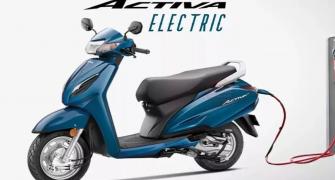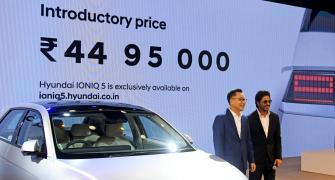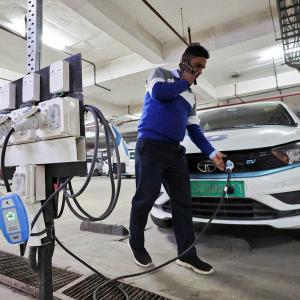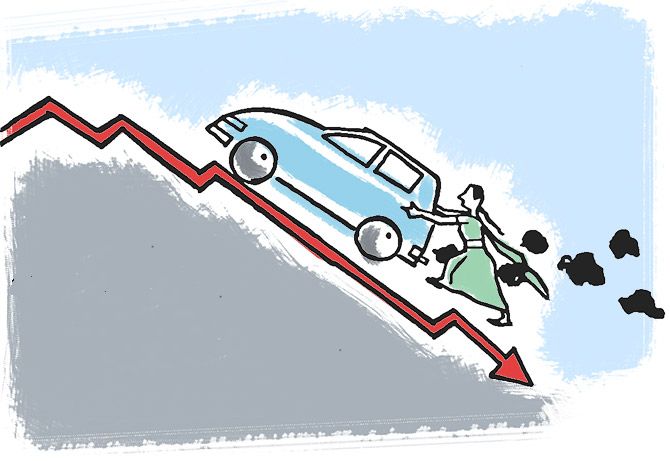With a new chief executive officer (CEO) at the helm, the country’s largest two-wheeler maker Hero MotoCorp is now looking to cut flab and move towards a leaner organisation.
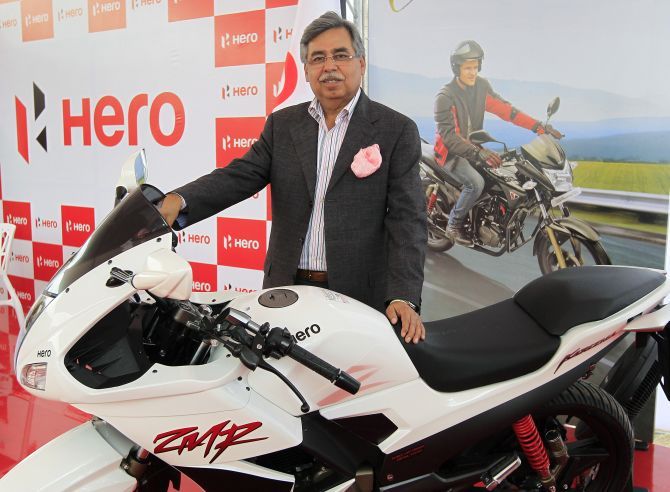
Pawan Munjal, chairman and managing director, Hero MotoCorp. Photograph: Jaime Saldarriaga/Reuters
It has launched a voluntary retirement scheme (VRS) for its staff as it aims to make the organisation ‘agile and future-ready’.
Recently, the company’s erstwhile chief financial officer (CFO) Niranjan Gupta was elevated as CEO.
Earlier, chairman Pawan Munjal was also operating as Hero MotoCorp’s CEO.
The company said — in a notification to the bourses — that in keeping with the objective of building a ‘robust’ organisation in a ‘rapidly evolving dynamic’ environment, it has launched VRS for its staff.
The aim is to consolidate roles and reduce layers to increase ‘empowerment and agility’.
“We expect this to improve efficiency in the company through a lean and more-productive organisation,” Hero MotoCorp said.
It added that, applicable to all staff members, the VRS offers a ‘generous’ package.
It includes, among other benefits, a one-time lump-sum amount, variable pay, gifts, medical coverage, retention of company car, relocation assistance and career support.
The company employs 9,173 permanent and 19,782 temporary or contractual employees, taking its total count to 28,955.
Hero’s peers have a leaner organisation.
Bajaj Auto, for instance, employs 10,134 as of March 2022, out of which 7,317 are permanent employees.
As for Hero, its permanent employee strength has increased from 8,266 in FY18 even as the company’s sales have slipped for three consecutive years.
Its contractual employee strength, on the other hand, has come down from 24,690 in FY18.
Earlier in 2020, some auto majors like Ashok Leyland, Toyota Kirloskar Motors and Honda Cars, among others, had launched VRS to improve operational efficiencies in a tough market.
“VRS indicates slowdown and delay in recovery but may lead to cost saving over a period. So, not sure on net impact at the moment,” said one analyst, who tracks the company closely.
He added this can save cost if done tactfully because Hero has many legacy employees with low-efficiency and high salaries.
However, it will not have any immediate benefit.
“In fact, on an immediate basis, it would have a one-time major expense,” analysts felt.
Hero MotoCorp’s unit sales rose by 11 per cent in FY23 to 5.15 million units but they are far below the pre-pandemic peak of 7.61 units (FY19).
It has seen three consecutive years of sales decline in FY20, FY21 and FY22, as rural sentiments were weak.
Prices of two-wheelers were also going up, thanks to regulatory norms and general inflation.
In the third quarter, the company saw a marginal 1.3 per cent revenue increase due to new launches and front-end action, noted Anand Rathi Research.
However, gross profit per vehicle has reached an all-time high of Rs 19,800, which increases company operating leverage and will benefit when higher volumes kick in during upcoming quarters, the analysts said.
“This has been made possible through a combination of judicious price increases and accelerated saving programs across the supply chain,” Anand Rathi Research noted.
The company has taken an average price hike of Rs 1,500-2,000 per bike in the last three months.
According to a Centrum channel check, dealers expect it to increase further from April.
The demand rise in the last few months has been led primarily by the 100 cc bikes, as rural sentiments recover.
Hero MotoCorp noted, “The general consumer sentiment is improving, as reflected in the sales performance in March.
"The constructive policies of the government and social sector reforms have given a further boost to the demand scenario.
"The two-wheeler industry expects these factors to contribute towards a double-digit growth in this financial year.”


